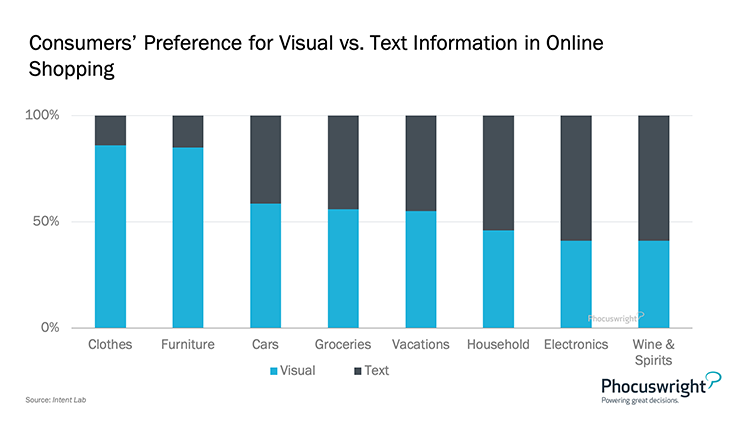The accelerating convergence of voice, visual search and mapping tech
- Published:
- January 2021
- Analyst:
- Phocuswright Research
Voice, visual search and mapping technologies are all valuable, in-demand tools for travelers, but how these tools converge into a single process is still emerging. Critically important is the user interface (UI) that integrates all three technologies, according to Phocuswright's latest travel research report The Accelerating Convergence of Voice, Visual Search and Mapping. Converging search using voice, image and mapping may require an integrated ecosystem.

(Click image to view a larger version.)
One example of booking a hotel based on an Instagram photo illustrates that if two different platforms own the conversation (e.g., voice via Alexa and content found on Instagram), coordinating a single search may prove to be challenging.
The company best positioned to overcome this limitation is Google, not only due to its advanced NLP and machine learning expertise, but as the owner of a robust travel search platform demonstrating an ability to fulfill the visual search request. But of course, in this example, the photo on Instagram would need to be tagged and associated with a property that can be booked through Google in order to complete the transaction. Even Google does not have a cross-platform way (access an Instagram post) to use voice and pictures to drive this new paradigm.
Google Maps is perhaps the best example of a seamless integration with an excellent UI. Google has positioned maps as the centerpiece of its in-destination travel resource. With Google's ability to search for flights and accommodations, extending this effort to include an integrated voice, visual and map search is a logical step for Google (provided that antitrust concerns don't become an obstacle).
Clearly, travel search continues to evolve, as consumers' preferences change and technology advances to enable fast and relevant results. Brands that balance the accelerating convergence of these three rapidly developing forms of search - voice, visual search and mapping - will have an edge over the competition by moving a little closer to travelers' preferred ways of shopping. Given the advancements in these areas by the large tech firms, travel companies need to aggressively pursue ways to take advantage of the tech trend, but translate it into delivering travelers to their own brand.
How these three important search technologies are integrated to enable a more seamless travel shopping experience is a key challenge for travel marketers today. To continue reading the analysis of how the three types of technologies - voice, visual search and mapping - are converging and altering how consumers access travel content, download the article here.
To get access to the entire Phocuswright research library for you and your colleagues, consider subscribing to Open Access.







.png)

.jpg)

